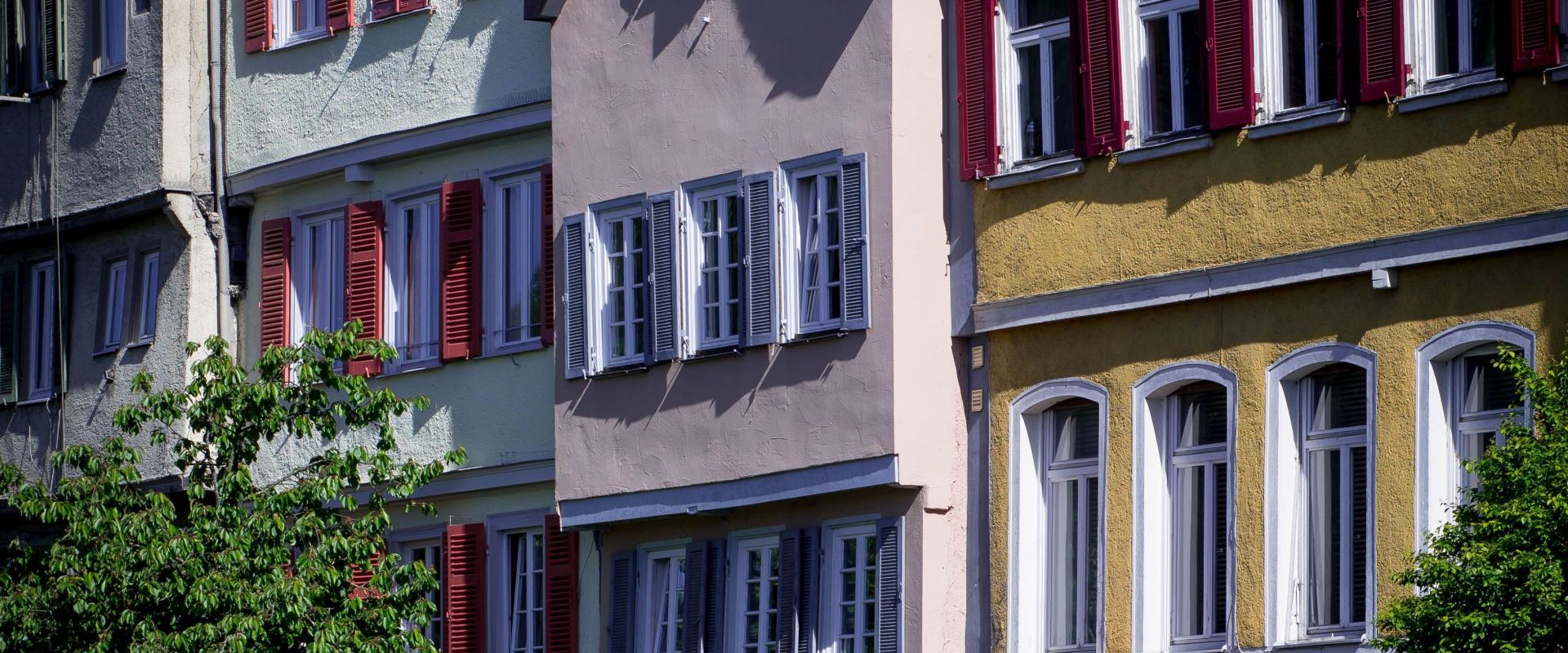

Housing in Tübingen is unfortunately not cheap. The most expensive area is the city center (Zentrum/Innenstadt/Altstadt). Housing of course gets cheaper once you move to the outskirts of the city. To get an overview, please have a look at our site Neighborhoods and Outskirts.
The most common types of accommodation you can find in Tübingen are:
The first choice for most international students is living in a student dormitory (Studierendenwohnheim). Facts you need to know:
Another way to save on housing costs is to share a flat (search term: Wohngemeinschaften, WGs). This is the most common form of housing while studying. These are flats shared between two or more people, with a common kitchen and bathroom. Everyone usually has their own room. Things you need to know:
Once you have a room offer in a WG you need to react quickly – but not without ensuring that the room is not a scam! Scammers try to get money and/or personal details from you, such as scans of passports etc.
Your rental contract will either be limited to a specific time or be unlimited. Most unlimited rental contracts have a 3- month notice period to cancel the contract. The WG may allow you to search for a new occupant who can move in earlier. But this would have to be negotiated with your roommates/landlord.
Please contact your personal support if you have any further questions.
If you prefer to live on your own, you will have to spend a little bit more. Here are a few things you will need to know:
We cannot provide legal advice but can help you if you have communication difficulties with your landlord. Please contact your personal support if you have any further questions.

Tübingen is a special place for research. Very few locations offer such a wide range of research areas in such close proximity - both physically and figuratively. Not only are all of Tübingen's research institutions just a stone's throw away from each other, they also collaborate closely within the Tübingen Research Campus.
Visit page
Life in Tübingen is life in the heart of Europe and in one of Germany's most scenic and economically competitive regions. It's a bustling mediaeval town with a young, international, and vibrant population and a rich cultural and artistic scene. Lectures, concerts, film festivals, and more: life in Tübingen never gets boring.
Visit page
The Neurosciences in Tübingen with more than 100 active research groups have the potential to rank among the most successful neuroscientific sites in Europe.
Visit page